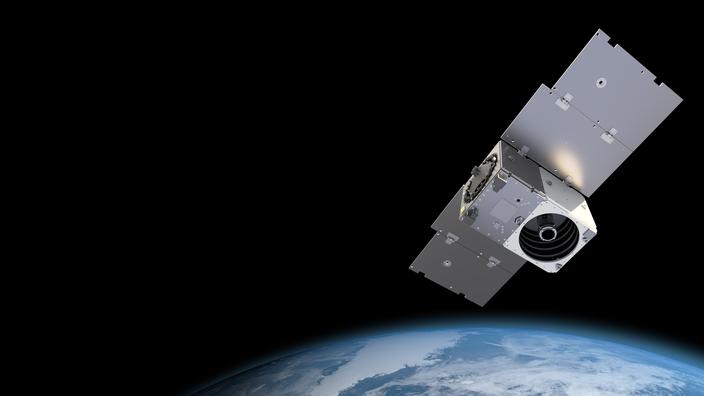It is a consecration for Planet Labs.
The pioneer of New Space, specializing in the valuation and commercialization of spatial data, made its debut on the New York Stock Exchange on Wednesday.
In ten years, since its creation by a trio of "
young geeks from NASA
", according to the expression of its co-founder Will Marshall, the young shoot has gone from the status of start-up to that of unicorn.
Admittedly, not yet in turnover ($ 113 million in 2020) but in value.
The listing values Planet Labs at $ 2.8 billion.
Read alsoAfter the crisis, "unicorns" are raining on global finance
For Will Marshall, "
This is the right time
" to go public because Planet Labs has become a credible partner, which collects 3 million space images per day, from its constellation of 200 satellites dedicated to the observation of the Terre, and has some 700 institutional and private clients around the world.
“
The Covid crisis is accelerating a movement already initiated by economic players.
The latter are massively adopting a more digital and more sustainable development model.
This digital economy needs our data in many areas, for example to improve agricultural yields in a fine way, the exploitation of forest resources with a view to sustainability or even the measurement of CO2 emissions from human activities
”, explains the CEO in an interview with
Le Figaro
.
Without spatial data, it "
will not be possible for the world to make a success of the energy transition
", he adds.
50% of the activity in defense and intelligence
The listing comes after the Planet Labs merger was approved last Friday by the shareholders of DNY Technology group, a Spac (Special purpose acquisition company), i.e. a company without operational activity created for the opportunity.
It was his securities that were issued on the stock market.
The new company, renamed Planet Labs PBC, hopes to raise $ 590 million to finance a new stage in its development.
Read alsoFor a Spac, attracting investors is easier than finding your target
The funds will be used to finance the deployment of a new constellation of small very high resolution satellites, called Pelican, which should be operational in 2023. It will succeed the current fleet of Doves and SkySat satellites. Planet Labs, which counts among its shareholders and customers Google, from which it bought in 2017 Terra Bella, its satellite division, intends to develop new even more precise applications, for example, to identify illegal forest clearing operations, to observe the state. cultures, but also to map towns, neighborhoods and streets (update of Google Maps) or even more effectively organize relief operations for populations during natural disasters (forest fires, tsunamis, etc.). Its servicesalso address the energy sector (monitoring oil stocks) as well as financial analysts, who rely on its statements, to establish their forecasts.
In addition, nearly half of its imaging services are used by the US defense and intelligence sector.
In May 2019, it was his images that enabled the United States to spot a North Korean missile test and, a few months later, the implantation of Russian S-400 air defense systems in Crimea, ultra-missiles. velocities constituting a major threat to NATO combat aircraft.
More recently, "
the Pulitzer Prize 2021 was won by journalists who revealed the presence of nuclear weapons silos and illegal detention sites in China, using data provided by our company,
" said Will Marshall.
Use of Copernicus data
In Europe where it wants to develop more strongly, Planet Labs has set up the piloting center for its constellation in Berlin, Germany. The company has already recruited private European clients such as the Axa insurance group, the chemists Bayer and BASF, the aircraft manufacturer Airbus as well as institutional clients such as the European Commission (assistance in forest management, protection of biodiversity , fight against illegal fishing, etc.) and the European Space Agency (climate modeling in particular), and the German and Norwegian governments. Without forgetting several universities.
Planet Labs combines its own data with that collected by Copernicus, the European Earth observation infrastructure, and then sells its processed data stream according to the needs of its customers, in the form of a subscription.
Thanks to this huge continuous flow of data, Planet Labs has "
a global picture of the Earth and its activity
", summarizes Will Marshall, for whom "
the value is now in the data
" which nobody can do without.
Thanks to these growing needs, the company expects its activity to grow by 40 to 45% over the next few years.

